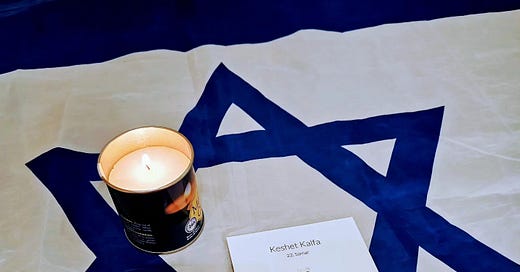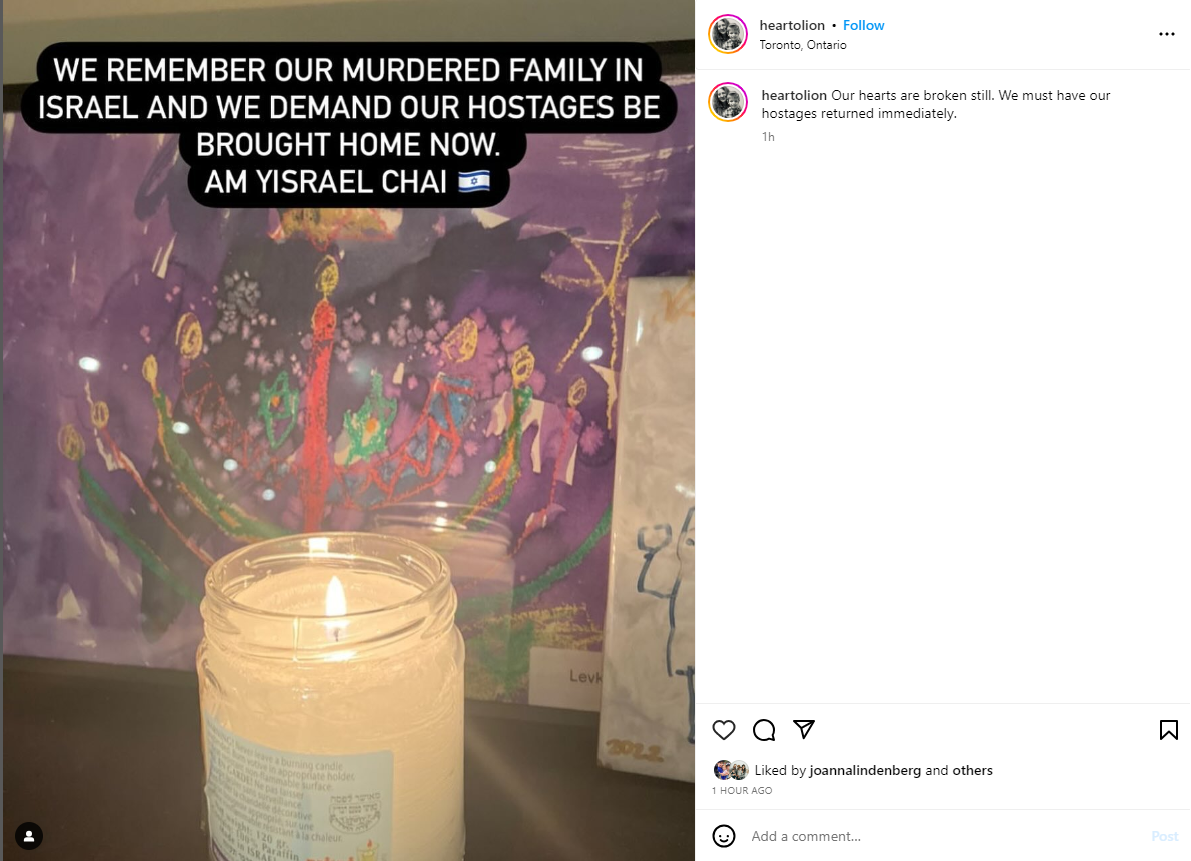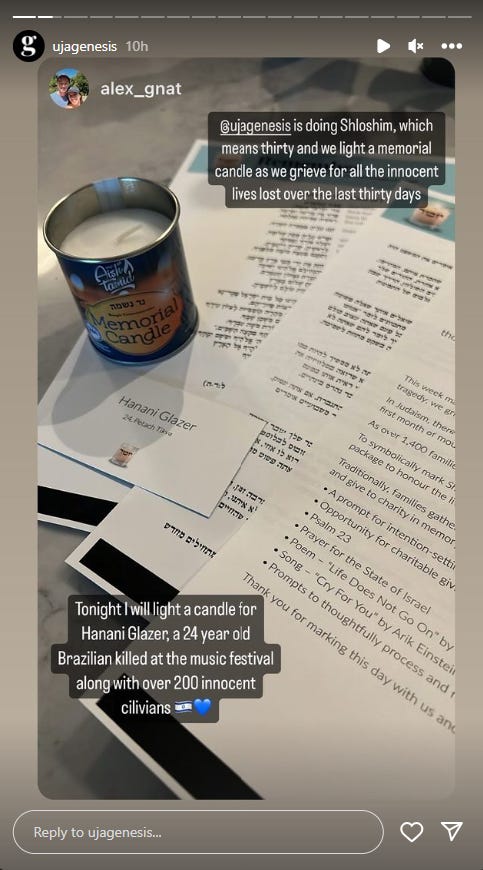This guest post was contributed by Kyle Lichtman
In Judaism we mark Shloshim (Hebrew for 30), the end of the first 30 days of mourning.
Today marks one month that has passed since Hamas (a terrorist organization) launched a violent and deadly attack on Israeli civilians, brutally murdering more than 1,400 people, and taking over 240 hostages - babies, children, teens, young adults, men, women, elderly, Holocaust survivors - to Gaza.
Over the last 30 days, antisemitism has been thriving. Rallies, news organizations, “influencers,” educators, general online rhetoric, and social justice warriors have made up or distorted facts, incited hate and violence and, at times, openly called for violence and death to Jews/Zionists. Jewish establishments (synagogues, stores, restaurants, homes) have been protested and vandalized. Jews have been beaten up and even murdered just for being Jewish. These public displays of antisemitism are often justified as freedom of speech, with no appreciation for the fear and violence the words and actions incite.
While it was the Diaspora Jewish community checking in on Israeli family and friends on October 7, and in the days following, telling them to keep safe, it is now Israelis telling their Diaspora family and friends to do the same.
It is still impossible to grasp how much the barbaric massacre of October 7 has and will change our world. Without a doubt, Israel will never be the same. But, what about Jews in the Diaspora? Some have changed their names in Uber, others have taken down their Mezuzahs and stopped wearing Jewish items like a Star of David. There have been days that parents didn’t send their kids to school and didn’t go to work themselves not because they were sick, but for fear of violence as protests blocked the Downtown Toronto core and there were calls for days of global violence against the Jewish community.
Many Jews feel both “more Jewish” but also more scared to be Jewish. Some feel closer to their grandparents’ lived experiences pre-Holocaust but are relieved their grandparents aren’t alive to see this. For some, generational trauma (traumatic memories that are part of our DNA) has left them already wondering, if it comes to it, who will hide them; and others questioning if they’d feel safer being a Jew in Israel.
What happened on October 7 was an attack on Israel but also on all the world’s less than 15 million Jews. It has never been more clear that anti-Zionism has always been antisemitism.
While many allies to the Jewish community have spoken out, unfortunately, their voices are often drowned out by others celebrating the massacre and/or calling for further violence using terms like “Intifada” and “From the River to the Sea.” As antisemites have become comfortable saying the quiet part out loud, it is increasingly important for non-Jews to take a stand. You don’t need to be Jewish or Israeli to say that you are outraged by the evil that took place on October 7 or the hate on the rise in your own backyard, you just need to be human.
Marking this Shloshim, we pray that the memory of every victim be forever a blessing. I pray daily with hope that those kidnapped will be sent home alive, safe, and in one piece, and that our community remains safe and proud.













